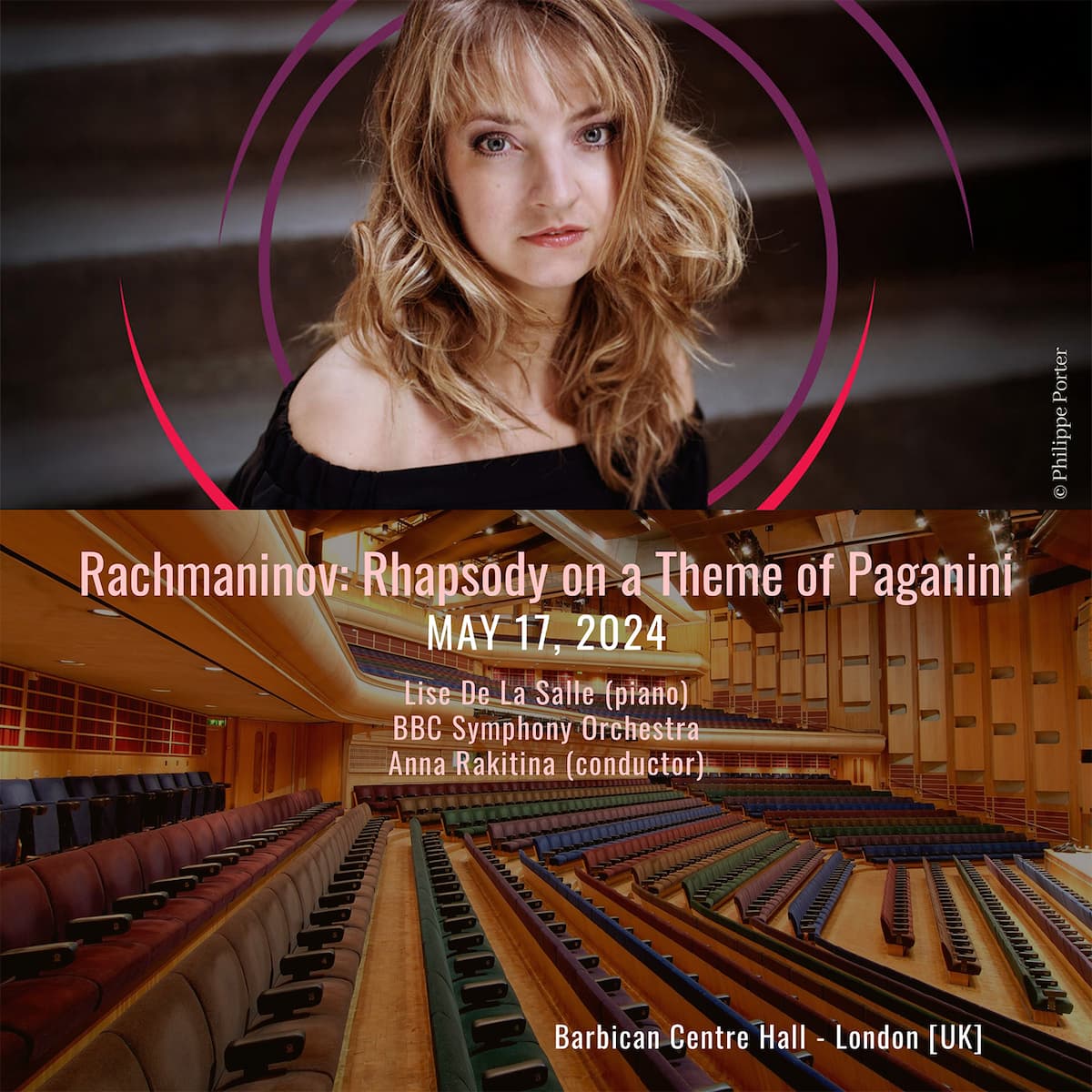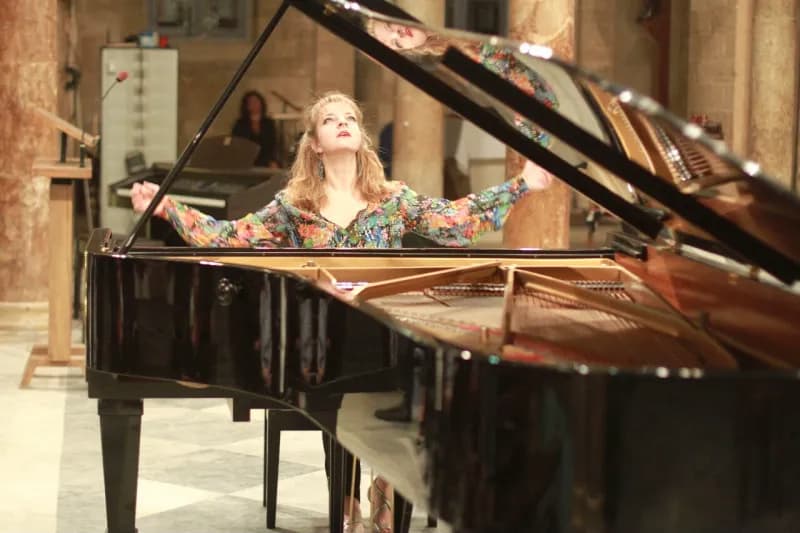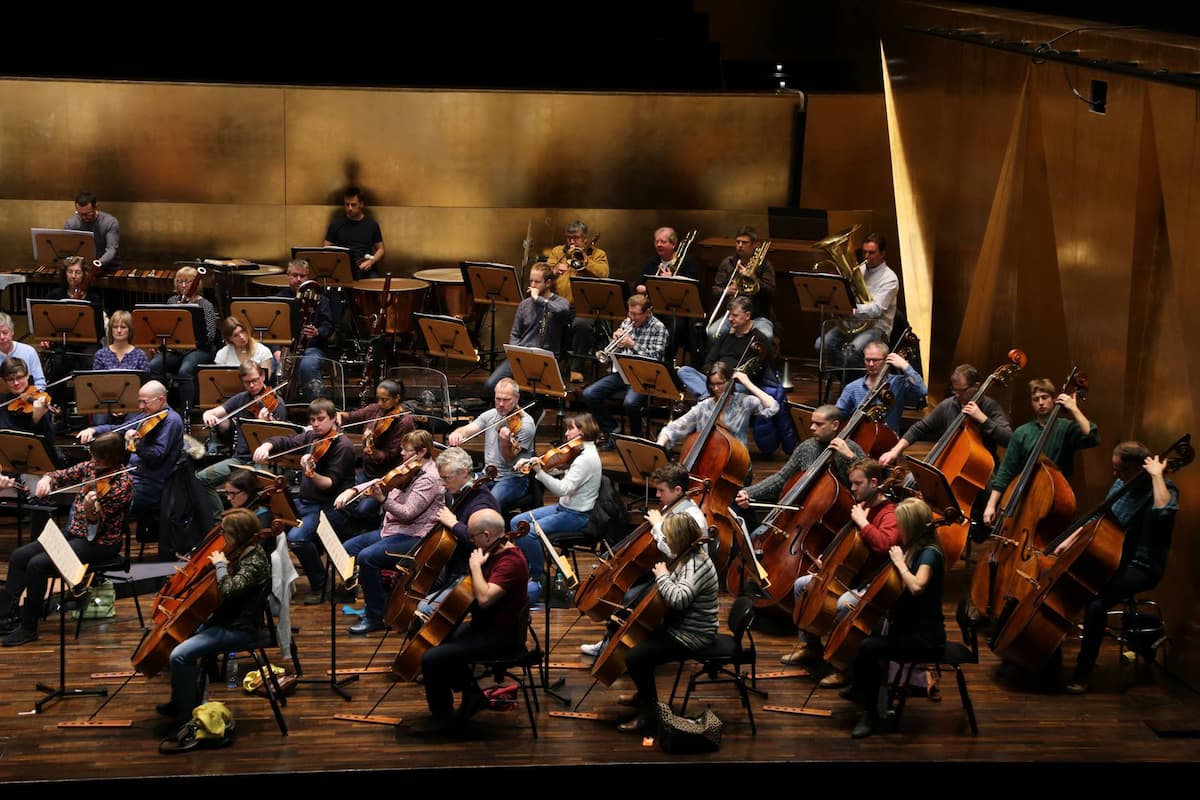The Barbican Centre witnessed contemplations on death and fate this evening (May 17, 2024). Under the baton of Anna Rakitina, the BBC Symphony Orchestra was set to perform the London premiere of Sofia Gubaidulina’s The Wrath of God and Rachmaninoff’s Rhapsody on a Theme of Paganini in the first half, joined by pianist Lise de la Salle, and Tchaikovsky’s Symphony No. 4 in F major in the second. While the title of the opening work was self-explanatory, the Dies Irae motif relentlessly repeated itself in Rachmaninoff’s Rhapsody, and the fate motif made its appearance at the very beginning of Tchaikovsky’s Symphony.

Commissioned by the Salzburg Easter Festival, The Wrath of God expanded upon the 13th movement of Gubaidulina’s oratorio Über Liebe und Hass (On Love and Hate). The work was conceived as a tribute to Beethoven, most notably by paraphrasing the motif from Beethoven’s String Quartet in F major, Op. 135 – “Muß es sein?” (Must it be?) followed by “Es muß sein!” (It must be!). The performance itself was fairly imaginative, where the ominous imagery of the Day of Judgement did come through, though the narrative behind it was not entirely clear. It later found greater conviction, with intriguing orchestral colours and moments suggestive of confrontations with destiny, eventually erupting into a fanfare.

Lise de la Salle © lisedelasalle.com
Rachmaninoff’s Rhapsody on a Theme of Paganini, at least initially, was rather underwhelming. The lighter passages saw some laboured playing from the pianist – a reasonably high level of technical precision was achieved, but the airy ambience was missing, while nuances were occasionally lacking due to a tendency to rush. Essentially, the earlier variations asked for more sensitivity and time to breathe. The orchestral accompaniment here didn’t help either, as the piano and orchestra were not together at quite some places, both physically and emotionally. Nevertheless, the rhythmic vigour, jazz inflexions, electrifying pianism (especially from Variation 19 onwards) and beautifully conjured moments like Variation 18 proved dazzling.
The first half of the evening ended with Schubert’s An Die Musik, a fittingly consoling encore which de la Salle dedicated to a better world with peace – something missing in humanity in recent times.
Issues with the orchestra, such as balance between the strings and woodwinds and playing in full synchrony, persisted in the first movement of Tchaikovsky’s Symphony No. 4 in F major, although the struggle between dream and reality and the inevitability of fate were still there. The slow movement, Andantino in modo di canzona, featured an alluringly melancholic oboe solo, and as the solo returned, it seemed to suggest that happiness would always be transient.

BBC Symphony Orchestra © Maciej Cybulski
Conducting scoreless, Rakitina continued to adopt a rather studied, cautious approach in the first two movements. It’s only till the Scherzo that she finally loosened up, which was also when the music sprang to life – the strings’ pizzicato was tactile, the peasanty interplay between woodwinds and brass was witty, and the flourishes of piccolo were radiant. The finale was as exhilarating as one would have expected from the BBC Symphony Orchestra in full force. This wasn’t just about velocity and precision but also pushing themselves to the verge of falling apart, bringing the symphony to an almost hysterical conclusion.
For more of the best in classical music, sign up for our E-Newsletter

